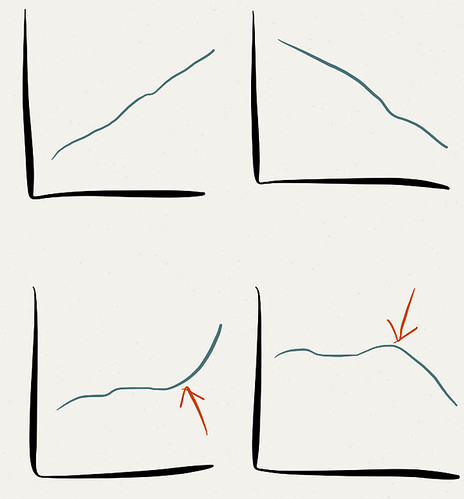Over the weekend, I was doing more reading of the Heart Sutra, a popular Buddhist scripture, and this one line kept leaping out at me:
Form is nothing but emptiness
Emptiness is nothing but form
Without getting into the technical details about what each word means (if you’re curious, go read Red Pine’s outstanding translation), it basically says that everything is empty of its own self-existence. There is nothing in this world that is absolute, nothing that doesn’t rely on something else for its very definition. Think about it for a second and you realize how true this is. A meal’s deliciousness depends heavily on our own state – if we’ve just eaten, even the finest meal may not be appealing. 70 degrees Fahrenheit could be warm if you’re from Boston but cold if you’re from Caracas. A beautiful woman or man means something different in the mind and eye of a 25 year old vs. a 75 year old.
Everything is relative. Nothing has a meaning that is inherent (except possibly something in your own belief system, which is a topic for another time). However, this lesson extends far beyond Buddhism into the realm of marketing metrics. Every metric we have, every metric we make the claim to live or die by is ultimately relative.
Think about the metrics you value and treasure. Twitter followers might mean the world to you but mean nothing to someone else. Visitors to your website is a metric that online marketers live or die by, but if you run a small local business that doesn’t have a website, website traffic is meaningless. Even the measures that in theory provide the most value can lose their meaning. How many marketers have worked at a company where they’re on fire with qualified lead generation, but the sales department couldn’t sell water to a man dying of thirst in the desert? Or how many sales professionals have worked at a company where they close like Blake from Glengarry Glen Ross but the company loses the customer immediately afterwards because the company couldn’t fulfill the promises of the salesperson? Closed sales are only valuable if the company nets revenue from them.
What’s the lesson here? Metrics are unquestionably important for understanding how we’re doing, but they are empty of their own meanings. Place too much emphasis or faith on any single metric and you will get burned, because you stop paying attention to the things that metric depends on, or other things that depend on that metric suffer. For example, let’s say someone decides that absolute unique visitors is the be-all, end-all metric to live or die by. They focus all their energy on visitors and nothing else. Projects like website redesign to improve conversion fall by the wayside. Projects like salesforce automation never get started, and all those visitors come into the website and do nothing. See how other things suffer from a belief in the absolute value of a metric?
Try as best as you can to see metrics as being links in a never-ending chain. Some parts of that chain you have no control over, and that’s fine. But look at all of the ones you do control or have influence over, and work to understand how they all play together to drive business results. Avoid putting faith in any one to the exclusion of others, and you’ll get maximum results from your marketing efforts.
You might also enjoy:
- You Ask, I Answer: Legality of Works in Custom GPTs?
- Almost Timely News, February 11, 2024: How To Evaluate a Generative AI System
- You Ask, I Answer: AI Works And Copyright?
- Almost Timely News, February 4, 2024: What AI Has Made Scarce
- Almost Timely News, Febuary 18, 2024: From Comment to Content
Want to read more like this from Christopher Penn? Get updates here:
 Take my Generative AI for Marketers course! |



Leave a Reply